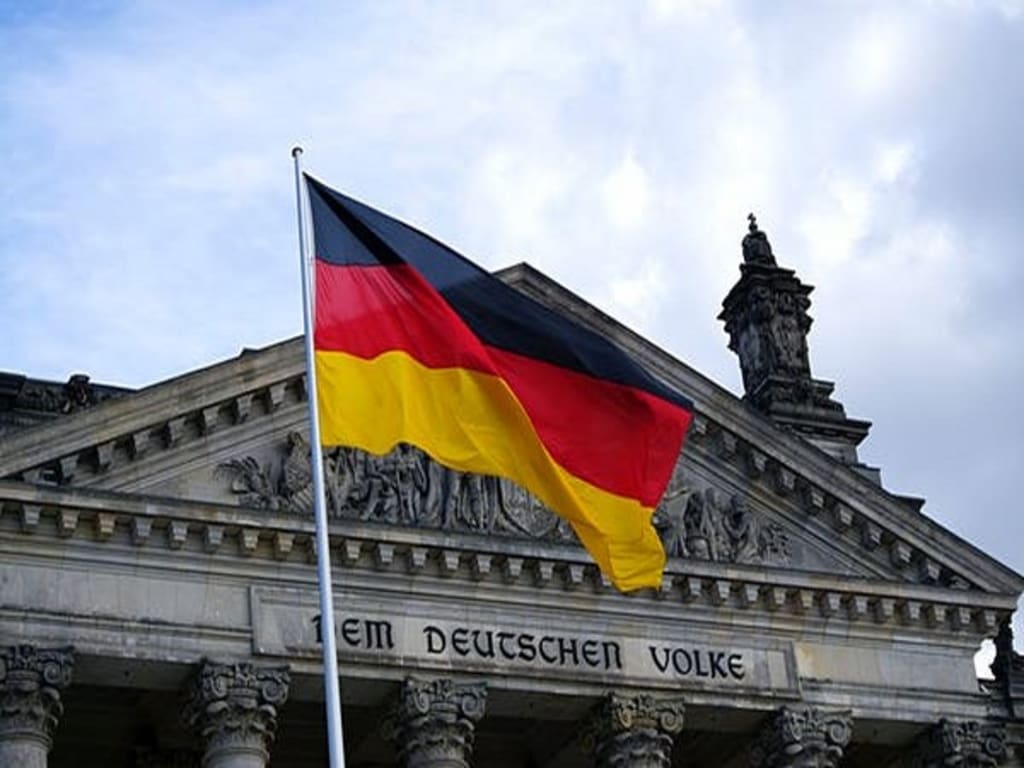Germany's Recession Explained: Causes,Impact and Future Outlook
An in-depth analysis of Germany's recession including its causes, impact on the economy, and future outlook.

As an economic powerhouse of Europe, Germany's economic health is closely watched. Recently, Germany's economy contracted for the second consecutive quarter, signaling the country has slipped into a recession. This recession comes at a time of slowing global growth and heightened uncertainty, due in large part to ongoing trade disputes and Brexit. For you as a citizen or investor, Germany's recession is understandably concerning. This article will provide an overview of how Germany arrived at this point, the potential impacts on jobs and growth, and the outlook for recovery. By understanding the causes and effects of this recession, you can make better informed decisions about your financial future in an uncertain time.
Germany's Export-Dependent Economy
Germany's export-dependent economy has been hit hard by the global economic downturn. As the world's third largest exporter, Germany relies heavily on sales to other countries, particularly within the EU.
When global demand falls, Germany's export engine sputters. In 2019, exports accounted for nearly half of Germany's GDP, with key trading partners including the US, China, UK, France, and Italy. As these economies slowed and demand dropped, German exports declined markedly.
Germany's manufacturing sector has borne the brunt of the impact. The auto industry, a pillar of German manufacturing, saw vehicle sales plunge as consumers delayed big-ticket purchases. Factory orders and industrial production have also dropped sharply.
The service sector, which employs nearly 70% of German workers, has weakened as well. When people buy fewer goods, they also spend less on services. The tourism and hospitality industries have been hit especially hard.
While Germany took action to curb the spread of COVID-19, measures like business closures and travel restrictions dealt a major blow to consumer and business spending. The government has passed large stimulus packages, but economic activity remains subdued.
Germany's recession will likely be severe but short-lived. As global trade recovers and demand for German goods strengthens, exports and manufacturing should rebound. Domestic spending may take longer to revive, depending on the course of the pandemic. However, Germany's solid economic fundamentals provide reason for cautious optimism about the future.
How the US-China Trade War Triggered Germany's Downturn
As the world's fourth largest economy and Europe's manufacturing powerhouse, Germany depends heavily on global trade and exports. When the US-China trade war intensified in 2018 with tit-for-tat tariff increases, it dealt a major blow to Germany's export-driven economy.
• US tariffs on Chinese goods reduced China's demand for German machinery and equipment. Germany's exports to China fell by 3% in 2019.
• Retaliatory Chinese tariffs on US agricultural products also hurt German farmers who export to China. For example, German pork exports declined by 16% in 2019 amid lower Chinese demand.
• Uncertainty from the trade war caused a drop in business investment in Germany as companies adopted a "wait and see" approach. Private investment in equipment declined for four straight quarters.
The damaging effects of the US-China trade conflict, combined with other factors like Brexit uncertainty and a global economic slowdown, plunged Germany into a recession in 2019. GDP contracted by 0.1% in Q2 and 0.2% in Q3, meeting the technical definition of a recession.
While a "phase one" trade deal between the US and China has eased tensions, the German economy remains fragile. The trade war's impact will likely persist as global supply chains are restructured. However, government stimulus measures, a resilient labor market, and an eventual rebound in global trade could help revitalize Germany's economy. With its solid fundamentals still in place, most economists expect a modest recovery in Germany, with GDP growth potentially reaching 1% in 2020.
Declining Car Production and Sales
Germany’s economy has taken a hit recently due in large part to decreasing automobile production and sales. As the fourth largest automobile producer in the world, Germany’s economic health is closely tied to the auto industry. When car manufacturing slows down or sales drop, it has a ripple effect on related industries like auto parts suppliers, raw materials providers, and transportation companies.
Over the past year, most major German automakers have experienced a downturn in sales and scaled back vehicle production in response. Reasons for the declining auto market include:
• Trade tensions and tariffs raising costs and reducing exports
• Brexit uncertainty leading to decreased demand in the UK, an important market for German automakers
• Stricter emissions standards requiring investment in electric vehicles and more efficient models, diverting funds from traditional car production
• Overall economic slowdown reducing consumer spending on big-ticket items like new cars
The drop in manufacturing and sales has led automakers to cut jobs, reduce work hours, and delay new investments. Suppliers and related companies have also had to scale back operations in reaction. The auto industry accounts for nearly 5% of Germany’s total economic output and over 800,000 jobs, so the impact of declining car production ripples across the entire economy.
Germany’s government has introduced measures to stimulate the auto sector like tax incentives for consumers to trade in older diesel vehicles for newer, more efficient models that meet emissions standards. However, until trade issues are resolved, Brexit moves forward, and the overall economy picks up speed again, Germany’s auto industry is likely to remain under pressure. A turnaround in vehicle production and sales will be a key factor in the country’s economic recovery and return to growth.
Tumbling Business Confidence and Investment
Germany's economy has been slowing down recently due to decreasing business confidence and investment. This section examines how we got here and what may come next.
Falling Business Confidence
Business confidence in Germany has declined steadily over the past year. According to the Ifo Business Climate Index, German business confidence fell to its lowest level in nearly seven years in September 2019. Companies have become more pessimistic about the business outlook and their current situation. This drop in optimism has far-reaching consequences, as companies are less likely to invest when confidence is low.
Declining Investment
With decreasing confidence comes decreasing investment. Gross fixed capital formation, a measure of investment in infrastructure and equipment, fell 2.5% in the second quarter of 2019. This marked the largest decline since the financial crisis. Companies are hesitant to invest in new buildings, machinery, and technology when the economic outlook is uncertain.
Impact on Growth
The tandem decline in business confidence and investment has acted as a drag on Germany's economic growth. GDP growth slowed to just 0.4% in the second quarter of 2019, and leading indicators suggest growth remained subdued in the third quarter. Without investment and confidence, consumer spending has become increasingly important to stimulating growth. However, spending has also started to slow amid worries about job security.
Future Outlook
Germany's economy is at a critical juncture. For growth to rebound, business confidence and investment must recover. The German government has indicated it stands ready to stimulate the economy through tax cuts, infrastructure spending, and other measures. The European Central Bank also cut interest rates in September to encourage lending and boost inflation. If these actions succeed in restoring confidence, investment should follow, allowing Germany's economy to return to steadier footing. However, if pessimism persists, a prolonged slowdown may be difficult to avoid.
Germany in Recession FAQs
What caused Germany to enter a recession?
Germany's economy contracted by 0.1% in the second quarter of 2019, signaling the country has entered a technical recession. A recession is defined as two consecutive quarters of negative GDP growth. Several factors have contributed to Germany's economic downturn:
• Declining exports: Germany's export-oriented economy has suffered from slowing global trade and growth. Major trading partners like China and other EU countries have reduced demand for German goods like automobiles, machinery, and industrial equipment.
• Brexit uncertainty: The prolonged uncertainty surrounding the UK's withdrawal from the EU has weakened business investment and confidence in Germany. Many German companies have commercial ties with the UK, so Brexit poses risks to Germany's economy.
• Struggling automobile industry: Germany's key automobile sector has struggled with declining sales, trade tensions, and the high costs of transitioning to electric vehicle production. The auto industry makes up about 5% of Germany's GDP, so its challenges have had ripple effects.
How will Germany's recession impact the economy?
A recession in Europe's largest economy will have consequences for Germany and beyond:
• Rising unemployment: As companies experience declining profits and sales, they may cut costs by reducing employment. This could cause Germany's unemployment rate to tick up from its current historic lows.
• Lower inflation: Reduced demand and economic activity often lead to lower inflation or even deflation. The inflation rate in Germany has already fallen below the ECB's target, and a recession could push it down further.
• Government intervention: The German government may implement fiscal stimulus measures like tax cuts, increased spending, and investment incentives to boost growth during the recession. However, Germany's government budget surplus and low debt levels give it room to act.
What's the outlook for Germany's economy?
Most economists expect Germany's recession to be relatively short-lived for several reasons:
• Interest rate cuts: The ECB has signaled it is willing to cut interest rates and expand quantitative easing to support the Eurozone economy. Lower rates should boost business investment and consumer spending in Germany.
• Global growth stabilizing: If global trade tensions ease and growth stabilizes in China and other major economies, export demand for German goods should rebound. This would lift Germany's key manufacturing sector and broader economy.
• Strong fundamentals: Germany has a highly skilled workforce, world-class infrastructure, and competitive companies in high-tech industries like renewable energy, biotech, and fintech. These strengths will continue to drive Germany's economy over the long run.
Overall, most forecasts show Germany's economy returning to modest growth in 2020. However, downside risks like a disorderly Brexit, escalating global trade wars, or geopolitical conflicts could prolong Germany's recession. Close monitoring of these risks and appropriate policy responses will be needed to
Conclusion
As you have seen, Germany's economy has slowed significantly over the past year due to various factors, both domestic and international. While the government has taken measures to stimulate growth, the road ahead remains uncertain. However, if historical trends are any indication, Germany's strong fundamentals should help the economy rebound. With prudent fiscal and monetary policies, increased global trade, and a focus on new technologies, Germany can leverage its highly skilled workforce and solid manufacturing base to return to steady, sustainable growth. Though the recession has been an unwelcome disruption, Germany remains well-positioned to prosper in the decades to come. The current difficulties will pass, but Germany's economic might will endure.





Comments
There are no comments for this story
Be the first to respond and start the conversation.